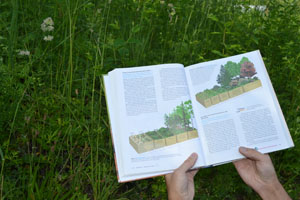Missing just one day of school can be tough – making up work, tests, and learning the new material is never an easy task. It’s necessary to miss school if one is truly sick, but are field trips really worth the repercussions of being absent?
“Sometimes field trips are an essential part of a curriculum and should be attended even when it means the students will need to make arrangements to make-up work in other classes,” said art teacher Angela Simpson.
Simpson has attended a variety of field trips, such as chaperoning a trip to theMuseumofModern Art. A range of classes atStaplesHigh Schooltakes field trips, like Spanish 5H, Culinary, Environmental Science, Marine Biology, and multiple music and theater classes.
Enviornmental teacher Heather Morley thinks that the field trips are necessary as they are truly the only way to effectively teach her class.
“If we were forced to teach it with out field trips, we would still have to go outside. Why would you learn about Maple trees out of a book when you can go and see them?” Morley said. She feels that allowing students to observe what they are learning helps them better digest the material, to the point where testing students on the material afterwards is not as important.
“Overall, I think field trips provide an authentic, enriching way to learn, and as long as attending the trip doesn’t pose too much difficulty in missing other commitments, they are very valuable,” Simpson said.
But it’s not only teachers who value field trips. Although some students don’t see the need for them, many understand their importance.
“They’re helpful because they provide a way of mixing up the way students learn,” said Alec Solder ’14. Agreeing with Solder, Victoria Mechanic ’12 said, “I’ve actually learned a lot on some of the field trips I’ve gone on, got hands-on experience on the subject while having fun.”
The Environmental Science class goes on two and a half hour long field trips twice a week that provide them with a tangible learning experience that doesn’t require them to miss their other classes. But other courses take day-long field trips, which in turn leave students a day behind their peers. “It can affect hundreds of people when students miss a day of school, but you can’t fight it – field trips are too important,” Morley said.
Morley said, “In a perfect world, we’d be able to take field trips every Friday and decide which subject got it that week.” And in that perfect world that Morley describes, each student would take the textbook learning they receive in class and would be able to apply it to the real world.
However, many students feel the opposite of their teachers. Amanda Keiser ’12, who took Environmental first semester, said that she was grateful to have the wonderful Morley as her teacher, but “all field trips in general don’t do much for kids except excited them because it’s something different.”
This excitement starts to dwindle by the second half of the Environmental course after spending two hours twice a week out of school, Keiser said. Luckily for students in Environmental, they never miss school due to the trips, but field trips in other classes sometimes do require students to be absent for an entire day.
Dan Haroun ’12 went on a day-long Spanish field trip toNew Yorkto watch a play based on a story that he had read in class. He noted the difficulty that came with missing an entire day of school. “I think that sometimes field trips are important and a great experience, but depending on the class they can make it difficult for students to catch up with school work they missed,” Haroun said.
Kumi Goto ’12 can attest to the difficulty of making up work. “When I was on the AP Environmental Science field trip, my AP Calculus started a new unit that was basically the basis for the rest of the year. So, I had to teach myself that, which was difficult,” she said.
Simpson felt that making field trips optional would be the best way to deal with the difficulty of being absent from school for a day, while still providing students with an opportunity for hands on learning. If students feel that the field trip would be enriching to their personal interests, they will still have the option of going on the trip, she said.
However, if a student knows that they will be missing a lot of work and doesn’t feel that they will profit from the experience, they will not be forced to go. “When it is optional, I would hope that the student weighs the educational benefits of attending against the hardship of making up work and doesn’t attend simply to have a day off of school,” Simpson concluded.













































